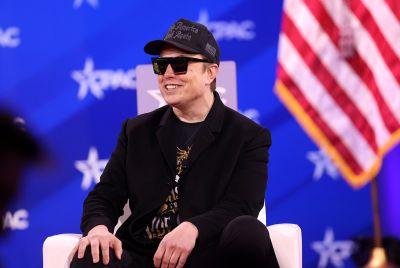Is Telsla Pi Phone Better Than iPhone Air 2? Here Is Everything We Know So Far
The iPhone Air 2 is coming in 2026. Leaks suggest an ultra-thin design powered by a next-gen A20 Pro chip. Get all the rumoured details.
Just when the tech world thought smartphones could not get any thinner, Apple redefined sleek with the debut of its first iPhone Air in 2025. It was a statement piece, a marvel of engineering that slipped into the conversation alongside the iPhone 17 lineup.
But the dust has barely settled on that release, and already the rumour mill is churning with whispers of its successor: the iPhone Air 2. As PhoneArena reports, while Apple remains tight-lipped, the tech community is buzzing about what the second generation of the brand's slimmest phone will bring to the table in a market hungry for innovation.
A New Rival to the Tesla Pi Phone? The iPhone Air 2 Release Date
The iPhone Air 2 is widely expected to make its grand entrance in September 2026, launching alongside the flagship iPhone 18 series. Apple's release schedule is famously consistent, with autumn launches being a near-certainty for its major products.
While Apple targets this established window, rumors surrounding the Tesla Pi Phone suggest a similar late 2026 or early 2027 launch, positioning it as a direct challenger to Apple's dominance.
While the first iPhone Air set a new precedent in 2025, there is no reason to believe its successor will deviate from this established pattern. The only potential disruption could be a staggered release for other models in the lineup; some speculation suggests the standard iPhone 18 might be held back until 2027. For now, however, all eyes are on a September 2026 window for the next ultra-slim device, setting the stage for a monumental tech showdown.
Design and Display: Refining the Tesla Pi Phone and iPhone Air 2 Era
In the other corner, the Tesla Pi Phone is rumoured to feature a more utilitarian but futuristic design. Leaks suggest a durable, graphene-infused polymer body with a slightly larger 6.7-inch solar-charging display. While likely not as thin as the iPhone Air 2, its focus is on resilience and unique functionality, such as enhanced integration with Tesla vehicles.
Do not expect a radical design overhaul for the iPhone Air 2. The entire purpose of the 'Air' designation is its incredible thinness, and the next iteration will undoubtedly double down on this core identity. The current model measures a mere 5.6mm, and its successor is likely to match or even slightly trim this dimension.
Expect a familiar construction of titanium for strength and lightness, with Ceramic Shield protection on both sides and a robust IP68 rating for dust and water resistance. Key features like the customisable Action button and the dedicated Camera Control button are also almost certain to return. The display will likely remain a 6.5-inch screen featuring ProMotion technology, ensuring a smooth 120Hz dynamic refresh rate.
Under the Hood: The Powering the Tesla Pi Phone and iPhone Air 2
Here is where the most significant upgrades are anticipated. The iPhone Air 2 is rumoured to come equipped with Apple's next-generation A20 Pro chipset. This is a big deal. While the A19 chip is built on a 3nm process, the A20 is expected to move to a cutting-edge 2nm process.
This leap could translate to a performance boost of around 15% while consuming up to 30% less power, making it one of Apple's most substantial chip advancements in years. This new silicon will likely be paired with 8 GB of RAM.
Furthermore, Apple is reportedly developing its own C2 modem, which could debut with the iPhone 18 line-up, promising better 5G efficiency and finally ending the company's reliance on Qualcomm for its modem hardware.
The Tesla Pi Phone, however, aims to compete on a completely different axis. It is expected to be powered by the 'Tesla N1 Neural Chip,' designed for seamless integration with other Tesla technologies.
The phone's most anticipated features are its native Starlink connectivity, offering satellite internet service where cellular is unavailable, and its potential for basic Neuralink integration, allowing for mind-machine interface functionalities. This positions the Pi Phone less as a simple smartphone and more as a central hub for the entire Tesla ecosystem.
Ultimately, the choice between the iPhone Air 2 and the Tesla Pi Phone will come down to user priorities. Apple is offering a masterclass in refinement, packing a significant performance punch into an impossibly thin frame.
Tesla, on the other hand, is promising a paradigm shift—a device that integrates directly with its cars, satellites, and even neural interfaces. It's a battle between elegant, established power and disruptive, ecosystem-driven innovation.
The question for potential buyers is one of patience versus immediacy. Will you opt for the polished power of Apple's next generation, or is the revolutionary promise of the Tesla Pi Phone more appealing? Let us know in the comments which device is on your radar for 2026.
© Copyright IBTimes 2025. All rights reserved.

























